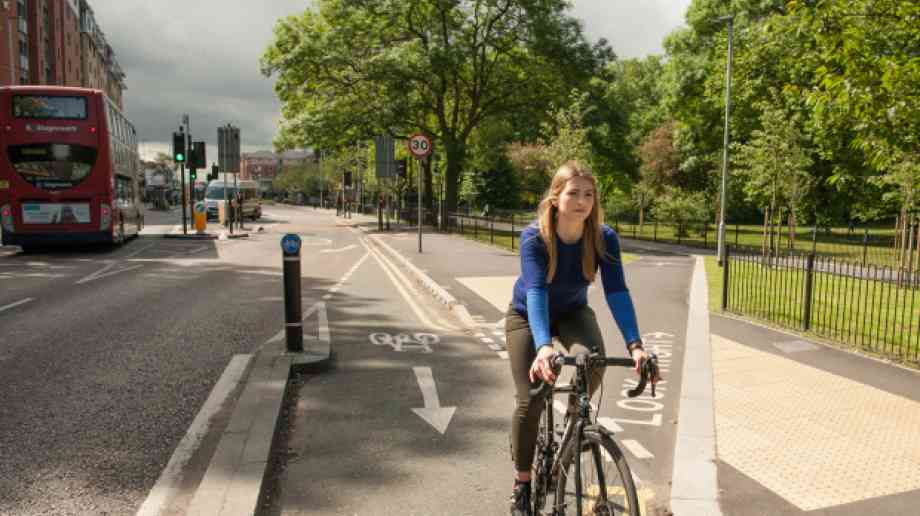Sue Robb of 4Children talks to Julie Laughton and Alison Britton from the Department for Education about the role of childminders in delivering the 30 hours free entitlement.
Shifting to electric vehicles isn’t enough says report

The government’s plan for decarbonising transport must focus on improving people’s quality of life, which cannot be achieved through a shift to electric vehicles alone.
This is according to new report from the IPPR think tank, who warn that current approaches to reaching net zero could lead to an 11 per cent rise in car traffic between 2021 and 2050. Analysing the Committee on Climate Change’s sixth carbon budget, the IPPR also claims that there could be a eight per cent increase in car ownership, with 10 million more cars on the road by 2050.
The report argues that an approach that places too much emphasis on the shift to electric vehicles, without also providing sufficient support for alternatives including affordable public transport, walking and cycling, would also likely benefit wealthy people more.
Over 90 per cent of the highest income households own at least one car (and over 20 per cent own three or more) while only a third of households in the bottom 10 per cent by income own a car. People on lower incomes would benefit much more from an improved public transport system, according to IPPR.
IPPR’s proposals to achieve a fair net zero transition include: creating a national guarantee for levels of transport and digital connectivity with the stated aim of making it possible to live a good life, wherever you live, without needing to own a car; a national electric vehicle charging rollout.; a ‘help to move scheme’ to provide grants and loans to support people to buy cycles, electric scooters, ebikes or electric vehicles where they need them; and reallocated road space to cycling, walking and green space.
As part of the last point, the IPPR says that town and city centres should aim to be car free by 2030. Local authority planners should set a target of at least 30 per cent tree cover for new developments and be able to prevent new developments that would increase traffic or car dependence.
Luke Murphy, head of the IPPR Environmental Justice Commission, said: “The urgency of the climate crisis cannot be overstated. Yet little progress has been made in cutting transport emissions over the past three decades. This imperative for urgent action creates a once-in-a-generation opportunity to put in place a new approach to how we all travel.
“The government’s current preferred strategy places an overwhelming focus on the shift to electric vehicles. While superficially attractive because of its offer of continuity, such an approach will not deliver for people or planet. We need to massively expand the provision of and affordability of clean public transport options, such as trains, buses and trams, while helping more people to regularly walk and cycle, alongside a shift to electric vehicles for those that need them.”
Company Focus
The Isuzu D-Max is a rugged workhorse that can fulfil a myriad of purposes as both a business and personal vehicle. Consequently, the D-Max is a particularly popular choice when it comes to farming, construction, and trade industries. Uncompromising in nature, the D-Max strives to be the ideal companion for many business needs.
Event Diary
UKREiiF has quickly become a must-attend in the industry calendar for Government departments and local authorities.
The multi-award-winning UK Construction Week (UKCW), is the UK’s biggest trade event for the built environment that connects the whole supply chain to be the catalyst for growth and positive change in the industry.
Supplier Profiles
Geo Energy
At GeoEnergy Design, we're on a mission to disrupt the traditional way heating and cooling ha
Latest Features
Professor Harith Alani, director of the Knowledge Management Institute at the Open University explains how AI can be used for good and bad.
Alex Lawrence, head of health & social care, techUK sets out techUK’s Five Point Plan for CareTech.

















